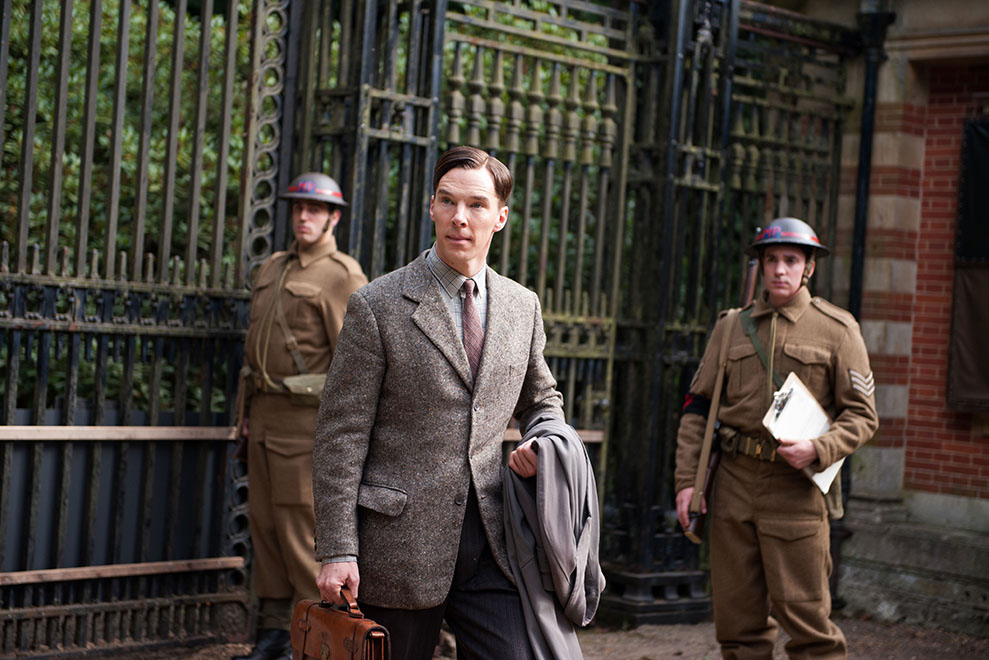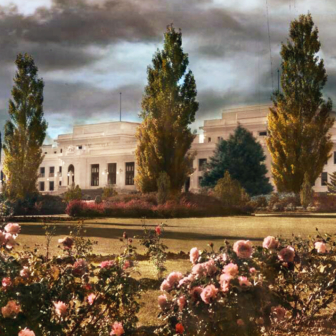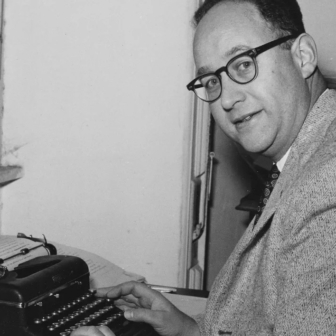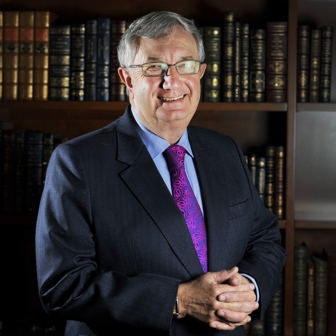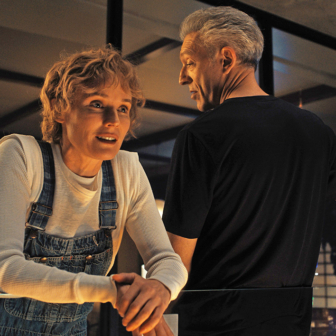For most of us, who will not have walked the Pacific Crest Trail from southern California to the border of Washington State, Wild offers a pretty fair scenic tour. Directed by Jean-Marc Vallée, Reese Witherspoon’s Cheryl Strayed leads us through desert bush as unforgiving as Central Australia’s, into snow country and towering forests, through numerous encounters in which the most threatening appearances are neither wolves nor rattlesnakes, but men; a couple of them come straight out of Deliverance. This is classically an odyssey, a journey driven by personal necessity, and a determinedly feminist project; the word is used along the way, with clear defiance. It is openly about taking control, conquering demons, self- and world-discovery. Witherspoon chose the story, and took a role on the production team as well as playing the lead; her choice of Nick Hornby as screenwriter was a mark of her ambition. With the film’s appearance, she has gained authority in the business – authority, that is, to make commercial movies stamped with guaranteed liberal worthiness.
To judge from magazine versions of Strayed’s well-published account, Wild delivers the story much as she told it. She was, at the outset, walking to deal with both grief and shame: grief for her mother Bobbi’s early death from cancer at forty-five, grief deepened and complicated by their fraught and messy relationship; Cheryl was exasperated by Bobbi’s failure to leave, decisively, the violent husband and father. The shame was for herself, her disgust with herself for messing up her own marriage and for her sexual fecklessness afterwards. The account of the gruelling hike is broken by flashbacks, rather too many of them; we’re threatened by glib psychologising, in which the past is constantly being called up to explain the present. So she’s walking away from protracted adolescent turmoil; what can she walk toward? The huge backpack is bigger than the actor; the visible process of the journey has to do with managing it, learning the tent, the right fuel for the portable stove, dealing with damaged feet and shoes. There’s something to think about in these practicalities, and in the relation of the traveller to the land as it changes around her; as she reaches the travellers’ posts with the guest books, and enters the quotes from Emily Dickinson, Adrienne Rich, Robert Frost (But I have promises to keep, And miles to go before I sleep).
Much more could have been done with those elements, and what they signal for people on long walks. That more, however, would be outside the literal/liberal genre which Wild convincingly inhabits. The whole outcome inevitably invites comparison with Tracks, John Curran’s film last year from Robyn Davidson’s memoir. These films approach adequate illustration, but illustration they remain. Each of them subtends the book; it does not take off from the book, it doesn’t get airborne. For each therefore, go back, read the book, and imagine. Or take a turn along the Larapinta Trail.
You could think of him as the wild man of world cinema, the prolix, extravagant Mexican director Alejandro González Iñárritu, who can somehow pull together big-budget films from seemingly anti-commercial elements. Birdman (or The Unexpected Virtue of Ignorance) is dividing audiences and commentators round the globe. In comparison with Babel, where he won and lost us by turns, this one offers something like an integrated story. Once upon a time the actor Riggan Thomson (Michael Keaton) was the star in the Birdman franchise (read Batman), ritually blowing up cities, flying above the skyscrapers and coming to the rescue. It emerges here that he had purposefully pulled out of the fourth in the series, wanting to build another kind of career, terrified of irrelevance; and now he’s got a serious, small-scale play on Broadway, one drawn from a Raymond Carver collection of stories (published 1981), What We Talk About When We Talk About Love. Low-budget, fine cast, accredited literary antecedence – what more could the over-indulged, demanding New York audience ask?
Irrelevance still threatens; and his alienated daughter Sam (Emma Stone, delivering fury with the biggest eyes in movies), just out of rehab, gathers up his fears and throws them back at him. It’s vengeance; as a father, he was never there. Her mockery is multiplied in the nervy gibes of Riggan’s star Mike (Edward Norton) and the exasperation of his friend and producer Jake (Zach Galifianakis). It doesn’t help when the current girlfriend has a pregnancy scare; and then, when Riggan’s ex-wife visits, we seem to be looking at the only grown-up in the lot of them. Here, in the midst of verbal and physical violence, profanity and mayhem, Amy Ryan’s performance has a fine, intelligent stillness. She says she’s trying to remember why they broke up; an attentive audience could devise its own answers.
There are other, crossing perspectives, from Naomi Watts’s Lesley in the on-stage cast, pathetically unable to believe she’s really making it on Broadway, and going into meltdown backstage (“I’m still just a little kid”); and from Lindsay Duncan’s waspish theatre critic, hooked on her own bit of power. It’s all an old story: the perilous allure and then the fading of stardom, the awful grip of the success/failure psychosis. There’s a fragmentary Raymond Carver poem, speaking the desire to “feel myself/ beloved on the earth”; and so, legibly, the film moves from Raymond Carver’s own story – much like Dylan Thomas, he flew high, and then drowned in the drink. Riggan identifies with Carver’s desire, but escapes his fate because he’s not a poet, but a performer who can whistle up magic-realist devices. Aspiring to seriousness, he grasps it precariously, and is then allowed to command the air again as Batman/Birdman – or if you like Peter Pan, who has his storyteller’s permission never to grow up. Michael Keaton does a wonderful job, balancing Riggan’s infantile self-absorption with a sad, open-eyed self-knowledge.
You might find the elements clichéd; some commentators have judged the work sour and shallow. Not if you go with its flow; Iñárritu, and his extraordinary cinematographer Emmanuel Lubezki have transformed the whole assemblage with sheer cinematic energy. In a continuous surge, we pursue Keaton and the rest along the narrow backstage corridors, watch from the flies above it, see night changing to dawn behind grimy facades, and then, as high farce takes over, pursue a near-naked Riggan pushing through the Broadway crowds: an extraordinary image of humiliation. The film’s narration isn’t so much in speech or in individual performance, not even Keaton’s; it’s in the drive, the fierce tidal rush, the purposeful circling of chaos.
Praised here, rebuked and reviled there, The Imitation Game is more than worth a second viewing. It is important that the Norwegian director Morten Tyldum’s film, written by Graham Moore from Andrew Hodges’s book about Alan Turing, disavows strict accuracy; the claim in the opening credits is that what follows is “based on a true story,” not that it actually is one. The story of the wartime cryptographers of Bletchley Park, and their role in cracking the codes used by the Germans in plotting their assaults, is now widely known from TV and theatrical versions; so is the name of Turing, the mathematical genius who devised the first massive mechanical computer. Images of its cumbersome, clanking operations, the banks of wheels watched in fear and hope by Turing and his team, are at the centre of the film. The yield from their calculations, from Turing’s claim that yes, machines could think, though differently, was crucial to the progress of the war.
Because we all vaguely know the antecedence of our endlessly pattering laptops, some commentators have written the film off as too comfortable to matter, too conventional in its telling. Others quibble at historical points, but the film isn’t trying for the long prehistory of cryptography; its centre is Turing. With the attention given to his lonely schooldays, with a beautiful brief performance by Alex Lawther as Alan, aged twelve, it forms a partial life story (which is not the same as a biopic). At that rate, some of the critique is off the mark; on questions of history, for instance, it surely doesn’t matter that in the milieu at Bletchley Park, Turing may never have met that colleague who turned out to be spying for the Soviets.
The Imitation Game offers a history behind the man’s suffering, his personal isolation. Benedict Cumberbatch gives a great, complete cinema performance; at close quarters, we look at gaucherie and near-autistic literalism in the workplace, at stumbling gestures towards fellowship, shy responses with rare smiles, and an awful retreat into stone-cold rejection when the girl comrade and colleague, Joan Clarke (Keira Knightley), proposes a shielding companionate marriage. Whatever intimacy Turing knew is reported, not seen; what’s seen is a near-incurable loneliness, mitigated – and to some degree overcome – in the major shared task: cracking the code.
Condemned for homosexuality when it was a criminal offence, and then punished by the barbaric method of chemical castration, Turing was pardoned by the Queen some fifty years after his death. The whole idea of the pardon is itself grotesque, but at least it carries important recognition; we now hear that Benedict Cumberbatch and Stephen Fry have together initiated moves towards extending such recognition to all the other, anonymous victims of that period’s punitive homophobia.
Thus filmic storytelling can make a difference, perhaps the more easily when its mode is classically conventional. As though sitting at a play, we can enjoy the turns of a great cast: Charles Dance doing inimitable top-brass nastiness as Commander Denniston; Rory Kinnear, visibly shifting sympathies as Turing’s police interrogator; Matthew Goode and others changing viewpoints, coming over to Turing’s side on the team; and Knightley in a role she endowed with the liveliest intelligence – you end up believing that she could indeed finish that testing crossword in five and a half minutes; and even knowing Turing’s end, you could stand and cheer for all of them. Forget the quibbles, and wave towards the wider histories beyond and behind our computers; by virtue especially of performance, this is a marvellous film. •
